Although your current pet’s vitamins or foods may be marketed as holistic, healthy or natural, it doesn’t automatically make it true. Far too many of the so-called “premium” pet products contain an ingredient that has been found to be incredibly dangerous to animals, as well as to humans. Sources indicate that 99% of its crops produced here in the U.S. are not only genetically modified (GMO) but also contains one of the highest percentages of contamination by pesticides of any of our foods and vitamins. You may be shocked to know how much this seemingly innocuous ingredient could be hurting your dog, your cat or your kids! Please double check your own pet food and vitamin supplement labels NOW and see if it contains…
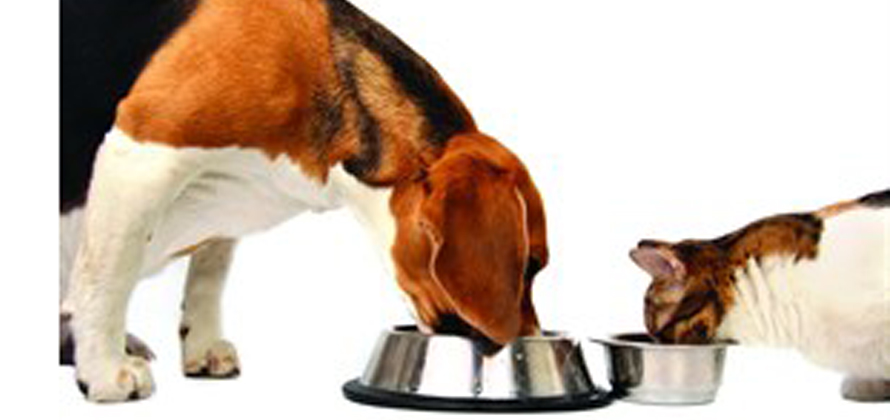 One of the most widely used, but frightening ingredients in pet foods and supplements is soy or soy oil. Soy is used mostly to increase protein values in products. It is estimated that fifty percent of the pet foods on the market contain soy in one of the top six ingredients slots. Because of bottom line economics, soy and its derivatives, like soy oil, soy meal, soy flour, soy grits, textured vegetable proteins (TVP) hydrolyzed vegetable protein, and soy proteins, (known as textured soy proteins) have grown in popularity in commercial pet products because it’s so cheap. The real expense however, is at the health of our pets; soy has been recognized as one of the leading causes of bloat in a dog; a potentially fatal and always painful gastrointestinal problem.
One of the most widely used, but frightening ingredients in pet foods and supplements is soy or soy oil. Soy is used mostly to increase protein values in products. It is estimated that fifty percent of the pet foods on the market contain soy in one of the top six ingredients slots. Because of bottom line economics, soy and its derivatives, like soy oil, soy meal, soy flour, soy grits, textured vegetable proteins (TVP) hydrolyzed vegetable protein, and soy proteins, (known as textured soy proteins) have grown in popularity in commercial pet products because it’s so cheap. The real expense however, is at the health of our pets; soy has been recognized as one of the leading causes of bloat in a dog; a potentially fatal and always painful gastrointestinal problem.
Soy Oil is used in many pet food supplements and is often touted as a skin or coat enhancer, but the best and safest vitamin choices for your dogs and cats contain high quality, cold pressed fish oils to ensure a healthy immune system and proper absorption of food in the digestive tract.
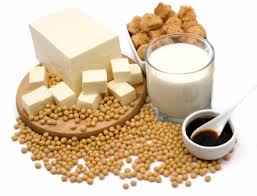 Soy has been found to be a leading allergen in both pets and humans and is also believed to depress thyroid function and since hyperthyroidism is common in cats today, this is yet another reason it should not be part of your feline’s diet.
Soy has been found to be a leading allergen in both pets and humans and is also believed to depress thyroid function and since hyperthyroidism is common in cats today, this is yet another reason it should not be part of your feline’s diet.
Scientists at Cornell University Medical College found that infants fed soy formula were twice as likely to develop diabetes, compared to non-diabetic children. Since soy creates spikes in blood sugar, it’s no wonder that many pets are developing diabetes in record numbers. Studies have shown that the ingestion of soybean products is also linked to seizures in both dogs and cats.
When you see a pet food label that contains soy in any form, you can bet that the manufacturer is not looking out for your best friend’s health.
 Remember that dogs and cats are carnivores and their diets are best suited with a high quality meat muscle protein. Several years ago, a study was done on the Cheetahs living in North American Zoos. A record number of them had died of liver disease and couldn’t breed effectively. Their diets consisted of horsemeat and soy. When the cheetah’s diets were switched to chicken meat without soy, their liver function showed significant improvement.
Remember that dogs and cats are carnivores and their diets are best suited with a high quality meat muscle protein. Several years ago, a study was done on the Cheetahs living in North American Zoos. A record number of them had died of liver disease and couldn’t breed effectively. Their diets consisted of horsemeat and soy. When the cheetah’s diets were switched to chicken meat without soy, their liver function showed significant improvement.

Consider your Birds Too: The effects of soy in a parrot’s diet have been recognized for years. Scientists have found that soy causes beak and bone disorders, but pet food makers still utilize this unhealthy ingredient to boost protein levels in their products because it’s so cheap.
Soybeans contain a large number of dangerous substances
✤ Soybeans are high in phytic acid a substance that can block the absorption of essential minerals in the intestinal tract, such as magnesium, copper, calcium, iron and zinc (which plays a vital role in immune system function).
✤ A clot-promoting substance call haemagglutinin is also found in soybeans, which causes red blood cells to clump together.
In the last two decades, soy products (tofu) and miso have gained in popularity with vegetarians and has been a staple in Eastern Diets. But there is a big difference between Soy 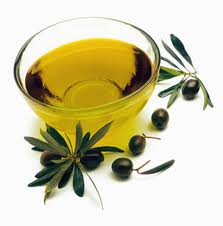 produced in Eastern cultures and those produced here in the U.S. Manufacturers in this country do not ferment their soy. The Chinese don’t eat unfermented soybeans because the soybean contains high levels of natural toxins or “anti-nutrients”. They are potent digestive enzyme inhibitors that block trypsin (a natural enzyme) needed to absorb and utilize protein. In test animals, diets high in trypsin inhibitors can cause enlargements of the pancreas and are believed to be linked to cancer. The only way to reduce the risk of ingesting these toxins from the soybeans is to ferment them for about eighteen months.
produced in Eastern cultures and those produced here in the U.S. Manufacturers in this country do not ferment their soy. The Chinese don’t eat unfermented soybeans because the soybean contains high levels of natural toxins or “anti-nutrients”. They are potent digestive enzyme inhibitors that block trypsin (a natural enzyme) needed to absorb and utilize protein. In test animals, diets high in trypsin inhibitors can cause enlargements of the pancreas and are believed to be linked to cancer. The only way to reduce the risk of ingesting these toxins from the soybeans is to ferment them for about eighteen months.
In addition, Eastern diets also typically contain a mineral rich fish broth, along with a serving of fresh fish or other meats. Soy foods, such as Tofu or tempeh are rarely eaten alone and are consumed in only small amounts.
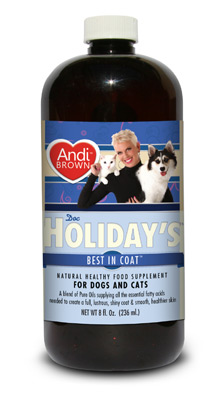
For the optimal health of the ones you love, please stay clear of soy and soy derivatives. Why take chances, when there is so much evidence against feeding soy to your dogs and cats. Holistic Veterinarians all agree that a diet of high quality meats proteins and oils will help to keep your pets in peak condition.
 Be sure to check out Best In Coat®. This miraculous supplement does not contain soy oil, but a bountiful blend of wild caught, cold-pressed fish and healthy plant oils; designed to bring out the “Blue Ribbon” quality in your pet’s coat, skin, immune system and overall health!
Be sure to check out Best In Coat®. This miraculous supplement does not contain soy oil, but a bountiful blend of wild caught, cold-pressed fish and healthy plant oils; designed to bring out the “Blue Ribbon” quality in your pet’s coat, skin, immune system and overall health!

Make Every Day A Holiday with Healthier Pets!
Xox
Andi Brown & “Doc” Holiday


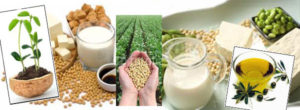
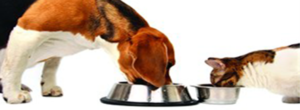

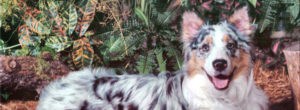

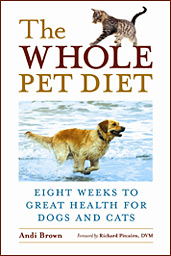
21 Responses
This is excellent information and I cannot thank you enough for sharing it.
Thank you for reading it and loving your pets with wisdom! xoxo
To follow up to this newsletter– lecithin granules is made from soy. I bought it for the Vitamix recipe only to find out that it’s made from soy. My dog experiences seizures . i want to remove wheat and corn and soy from her diet
Yes, lecithin is also problematic. Thank you for adding that!
I have been feeding my dogs “Healthy Powder,” a nutritional supplement recipe in “Dr. Pitcairn’s Complete Guide to Natural Health for Dogs and Cats:”, page 53. a major ingredient is lecithin granules. Now I read in Andi’s newsletter that lecithin is dangerous for dogs. I thought that Andi and Dr. Pitcairn were colleagues. What is the story on this conflicting information?
We learn as we go. Years ago I was unaware of the dangers of soy and lecithin and I also used to recommend it as part of a skin and coat supplement protocol. I do not know how Dr. Pitcairn feels about soy and lecithin now, but I have seen so much evidence on it in recent years to know that I wouldn’t want it in my own pet’s diet.
Organic soy is not GMO and does not have the pesticide load of regular soy. If you still want the benefits of lecithin, organic soy lecithin is not common, but it is available. Also, sunflower lecithin is an option now.
Great Information. THANK YOU! xoxo
Thank you, Andi. Good answer – we do learn as we go. I have started my dogs on your oil blend and plan to drop the lecithin.
What about arsenic in white rice. Babies are to get 1 1/2 servings a week. My dogs food is about at least 30% white rice and she gets it 4 times a day. She weighs 15lbs about the size of a baby. She is on EN by purenia fo history of pancreatitis. HELP
There is no reason to ever feed white rice to pets. It has no nutritional value and should be eliminated and replaced with ingredients that will benefit your dogs and enhance their life. Pet food makers use rice to fill up the can or bag and make big profits. xox
Hi,
What about soy lipids?
Soy is soy. I wouldn’t use it. xox
Thanks soo much for the article — it is great info!
Thank YOU so much for your feedback! xoxo
Thank you, Andi for all the great information. It is greatly appreciated. Happy Holidays! (no pun intended ;))
Thank you! Very happy Holidays back at you! xoxo
You are right. We never want Soy products. We all used to think soy was ok, but there is way too much research supporting NO SOY is best. Thank you!
Hello! Thank you for this information. Just to be clear, do you also advise avoiding giving soy lecithin granules to cats if it’s non-GMO?
Hi Alara, There is no reason to use soy or any soy products for cats, even if it is non-GMO. The reason so many companies use soy is to give the animals a cheap source of protein. Protein for cats should be derived from high quality, human-grade meats. That’s how to keep your sweet ones healthy. xoxo Andi